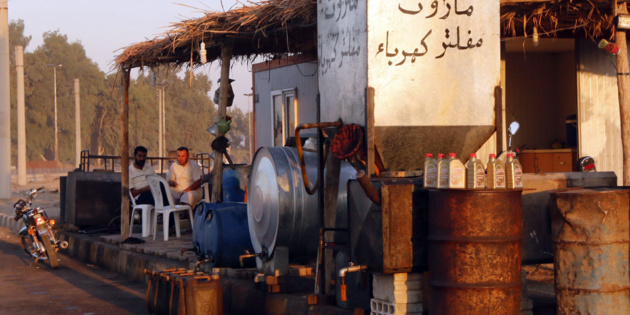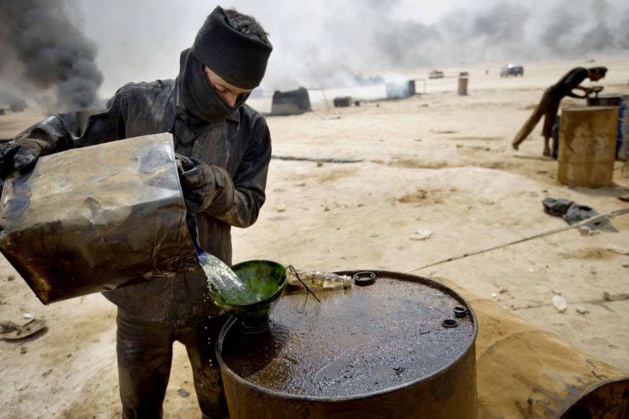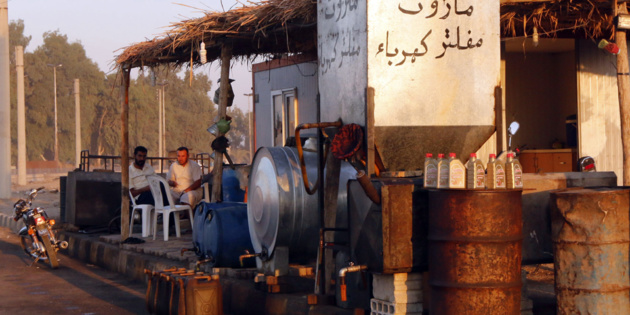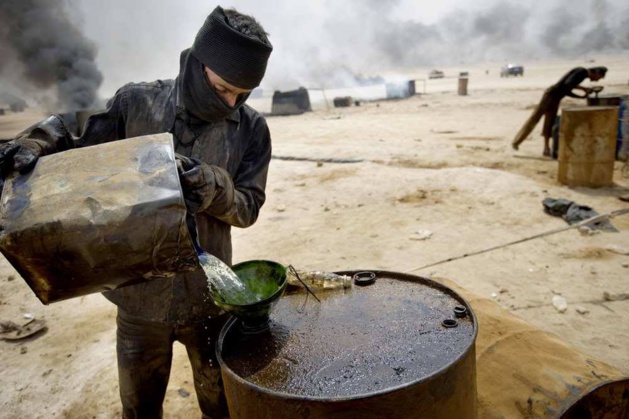
Founded in 2006 by Jordanian Jihadi Abu Musab al-Zarqawi, “the monstrous Islamic State” today controls a large swathe of Syrian and Iraqi territory. Forbes magazine named its leader, Abu Omar al-Baghdadi, 57th in a list of the most powerful people in the world in 2015. IS erupted onto the world stage on 10th June 2014 following the symbolic capture of the city of Mosel, Iraq, and staged two major attacks on French territory within a single year. Within two years, the terrorist organisation has prospered from the devastation of two states, fully exploiting their resources.
According to a report published by Jean-Charles Brisard, an expert on international terrorism, 82% of ISIS’s financial revenue comes directly from the resources at its disposal. Within this figure, 38% is generated by the sale of oil on the black market. Through the seizure of major oil fields in both Syria and Iraq, in places such as Al-Omar, Raqqa and Deir Ezzor, the terrorist organisation has quickly become able to finance itself. Unlike Al-Qaeda, whose economic survival depends on local and international private donations, as well as on ransoms for hostages, ISIS finances its “crusade” in the Middle East and Europe through autonomous means.
Significant Revenue
Jihadists control approximately twenty oil wells in Iraq and Syria, making up 10% of Iraqi production and 60% of Syrian. Oil production generates between 500,000 to 1 million Euros a day. According to an in-depth study published by the Financial Times, ISIS may produce between 34,000 and 40,000 barrels of crude petroleum a day. Sold below market price, from 15-40 dollars depending on its quality, the oil is then exported to countries that are usually Iraqi clients, including a number of European Union member states. In September 2014, in a statement which drew a lot of attention, EU Ambassador to Iraq Jana Hybaskova confirmed that “Some EU member states have bought ISIS oil”.

As Derek El-Zein, head of conferences at Paris Descartes University and expert on international relations, has underlined, “the workings of the oil market is opaque and allows this type of operations to go on, all the more so when it means substantial margins of profit for those involved”. As such it is not necessarily in the interests of some actors to see the destruction of ISIS and its oil exports.
The Double Standards of Turkey-Syria Relations
This situation is made possible due to Turkish lax attitude, which has been closing its eyes to the lucrative trafficking taking place at its borders. “The provisions from Iraq’s client countries take the same major routes through Turkey, both before and since the existence of ISIS. Turkey has always taken an ambiguous position towards ISIS, and has hugely contributed to its success in selling oil”, stated Derek El-Zein.
Moreover, the Syrian issue has raised a number of questions. Decimated since 2011 by the conflict between the Bashar Al-Assad’s regime and the opposing rebels, Syria has not yet suffered from an electricity shortage, even though the principal oil sites are in the hands of the terrorists. As Derek El-Zein explains, one should not think that a country at war necessarily ceases to function; instead it organises itself differently within the new constraints. Lebanon, which experienced almost twenty years of civil war, found itself in this position and adapted accordingly. “The interests at play are so important that they generate new provisions and production cycles, which often forces belligerents to cooperate in certain areas and fight in others”. Thus, although they are enemies on the battle field, the Syrian regime and the so-called Islamic State are partners in the oil market.
An Income on the Decline
The revenue generated by the production of this black gold today enables the so-called Islamic State to finance its activities. However, the question remains: how much longer this can be sustained for? International coalition strikes against ISIS territory are taking their toll on the regularity of oil income. Following the attacks on Paris last November, it seems likely that France and her allies will further intensify military action. The Caliphate will thus have to face a major limitation, since without its black gold, it will be difficult to manage their expenses without weakening the structure of the organisation.





























